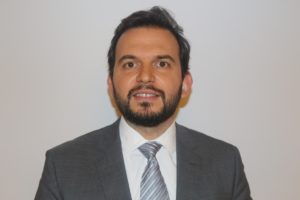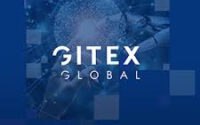Pearson Organises Conference On The Changing Landscape Of Higher Education In MEA
Pearson, the world’s leading learning company, recently organized an insightful panel discussion on the topic “Is Higher Education Changing?” as part of its first Higher Education Middle East & Africa Conference 2022.The theme for the event was “Growing Together”, as a part of Pearson’s commitment to bring the broader education ecosystem together and contribute towards shaping up the future of higher education in the region. It invited participation from some of the key industry leaders & prominent academic institutions including, University of Jeddah, Khalifa university, Mancosa university and MEF University.
Today, the global higher education sector has been momentously transformed as a consequence of the recent pandemic and rapid technological disruption across industries. A report by World Bank shows how MENA countries have responded resiliently towards this change by shifting to digital & with some universities in countries like KSA delivering over 7,000 virtual classes to appx. 1m learners during the lockdown. The demand for digital content and assessments is on a rise and govt. bodies are now looking at how the gap between education & employability can be bridged through upskilling, reskilling programmes, and aligning learning outcomes to the dynamic market needs. A survey conducted by PwC indicates that, 81% of CEOs in the Middle East term this skill gap as a major business threat, especially for a future where 5G connectivity, cloud computing, AI and more advanced technology will gain popularity. Against this backdrop, the panel discussion helped uncover some valuable insights around the outlook for 21st century higher education in a post-Covid-19 world.
Sharing his thoughts on the session, Majid Mneymneh, Vice President, Higher Education Middle East and Africa, said: “The next few years in higher education are poised to herald a tech revolution and major changes. We are now moving towards a world wherein learn-on-the-go models will become prominent, and a seamless integration of content, virtual platforms and immersive technologies will be required. At Pearson, we recognize our responsibility towards contributing to this evolving education ecosystem, which is why we are initiating these conversations with the relevant stakeholders in the education industry, to understand the demands and to build relevant partnerships, upgrade our offerings, introduce new-age courses, and work with the overall academic community to help learners prepare for the future job market. The insights discussed on the panel will help us understand the current needs of institutes, faculty, learners and accordingly come up with innovative solutions to create an outcome-based learning framework.”
The panellists comprising of Prof. Ramzi Al Saedi, Dean of College of Science University of Jeddah, KSA; Dr Asli Hassan, Director of the Center for Teaching and Learning, Khalifa University, UAE; Prof Zaheer Hamid, Director, Academic/Chief Academic Officer, Mancosa University, South Africa; and Prof. Dr Erhan Erkut, Vice Rector, MEF University, Turkeytouched on many topics under the umbrella of how higher education is advancing. The panellists discussed the importance and need for flexibility that emerged over the last 2 years and the increased demand for easy access to more interactive digital content so that students can learn on-the-go. One-on-one online tutoring was found to be extremely popular as this meant that students could get individual attention anytime, anywhere. The discussion also covered the evidence of the necessity for a wide range of programs from full-time and part-time to micro-grams, boot camps, blended, and online learning. All panellists agreed that hybrid learning is undoubtedly the future of the education sector. In such a scenario, choosing the right partner is crucial to improve the landscape for students and faculty as they play at the intersection of offering digitally innovative, academic content and critical skills for employability. This can help education institutions, especially when it comes to customizing courses at an institutional level, to deliver a market-driven need.
Over the last two years, MENA’ economic recovery has been fast and primarily tech-driven, with digital nomads and entrepreneurs playing a pivotal role. Partnerships with institutions’ alumni and companies in the private and public sectors have proven essential to providing employment and semester-driven courses are slowly becoming obsolete with students looking to affordably acquire or improve market-driven skills in shorter time frames. Pearson as a learning company has been playing an integral role in providing the education community with quality content, courses & innovative platforms to navigate through this digital transformation.







